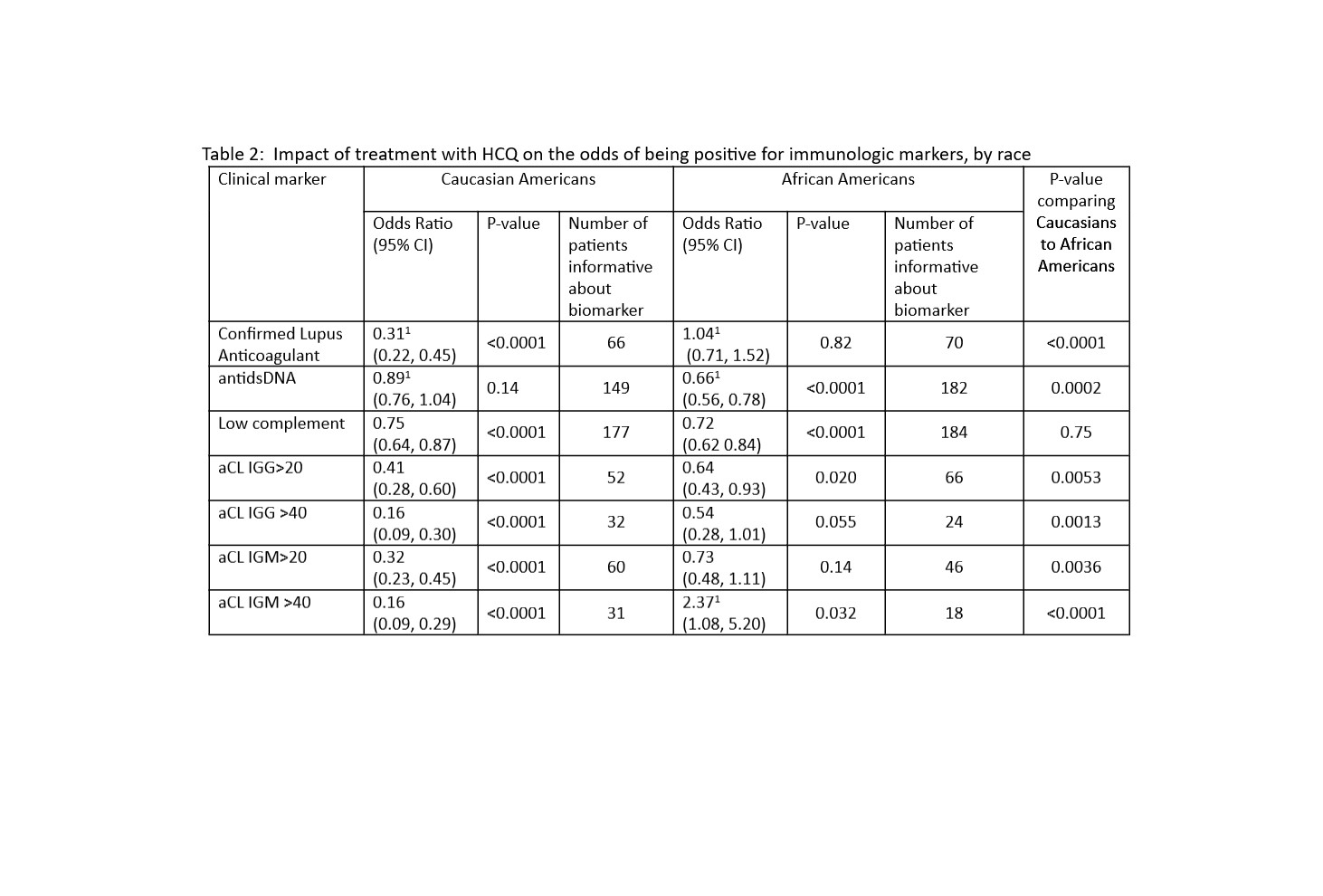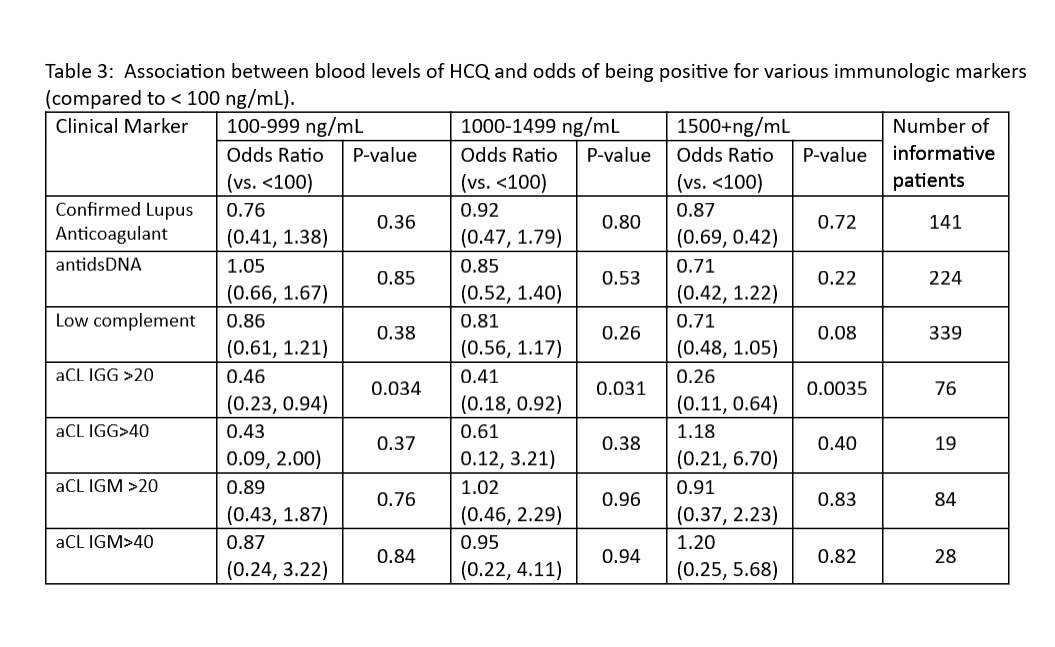Session Information
Date: Saturday, November 7, 2020
Title: SLE – Treatment Poster I
Session Type: Poster Session B
Session Time: 9:00AM-11:00AM
Background/Purpose: SLE patients with certain immunological markers (i.e., anti-DNA, low complement) are at higher risk of lupus nephritis and those with antiphospholipid antibodies are at higher risk of thrombosis. We explored whether treatment with hydroxychloroquine has an impact on these markers.
Methods: We analyzed data gathered prospectively from quarterly clinic visits from a large American SLE cohort.
Patients visits were classified as “on HCQ” if they reported taking HCQ at that visit and at the previous visit. Patient visits were classified as “off HCQ” if they reported not taking HCQ at that visit and at the previous visit. For a recent subset of visits of patients on HCQ, blood levels of HCQ were also measured.
Serum markers studied included Lupus Anticoagulant (dRVVT, mixing plus confirmatory test), anti-DNA (measured by Crithida), low complement, and anticardiolipin (aCL) IgG and IgM which were considered positive if the titer was greater than 20 or 40.
For each patient, visits on and off HCQ were compared with respect to the rates of immunologic marker positivity. These comparisons were summarized across “informative” patients using conditional logistic regression controlling for age. “Informative” patients were those who sometimes but not always were on HCQ, and sometimes, but not always, were positive for an immunologic marker.
Results: Table 1 shows the overall results of our analyses. While on HCQ, the odds of being positive were significantly reduced for each test. Table 2 shows the same results, stratified by race. There were striking differences between Caucasian and African Americans. Notably, HCQ was associated with a 62% reduction in the odds of lupus anticoagulant among Caucasian Americans, but no association was observed among African Americans. Table 3 shows the relationship between blood concentration of HCQ and immunologic markers among those on HCQ. This analysis (based on a smaller subset with less power) generally showed that those with concentration exceeding 100 ng/ml had lower odds of being positive, but the protective effect was most striking for aCL IgG >20.
Conclusion: These findings suggest that the benefit of HCQ may be mediated by its effects on antiphospholipid antibodies, complement and anti-dsDNA. These findings also highlight the differences between Caucasian Americans and African Americans with respect to these effects of HCQ.
To cite this abstract in AMA style:
Magder L, Goldman D, Petri M. Impact of Hydroxychloroquine Treatment on Immunologic Markers in SLE Depends on Ethnicity [abstract]. Arthritis Rheumatol. 2020; 72 (suppl 10). https://acrabstracts.org/abstract/impact-of-hydroxychloroquine-treatment-on-immunologic-markers-in-sle-depends-on-ethnicity/. Accessed .« Back to ACR Convergence 2020
ACR Meeting Abstracts - https://acrabstracts.org/abstract/impact-of-hydroxychloroquine-treatment-on-immunologic-markers-in-sle-depends-on-ethnicity/



